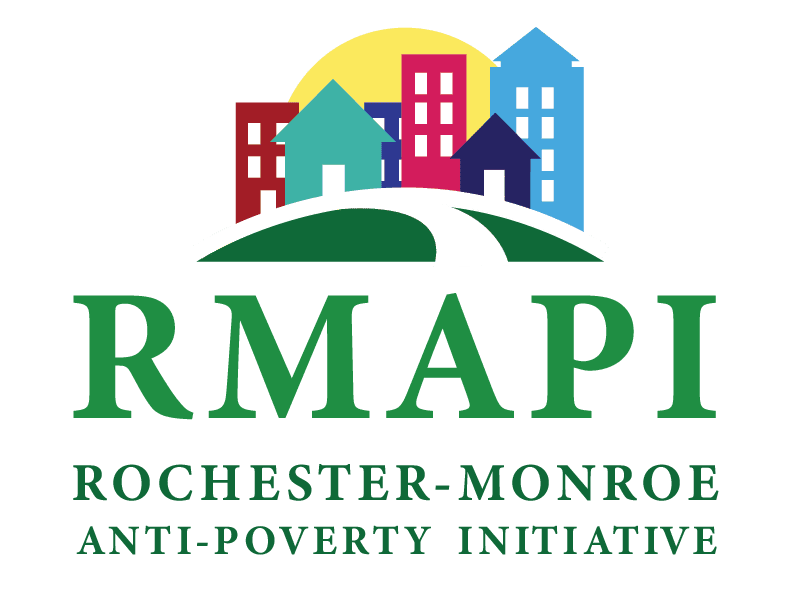RMAPI Theory of Change – Systems Outcomes
Our Theories of Change and System Outcomes
NUESTROS OBJETIVOS PARA EL CAMBIO SISTEMICO
El Colectivo RMAPI ha desarrollado un conjunto de resultados y objetivos sistémicos que definen el trabajo de nuestro plan de acción de unidad. Hemos analizado los obstáculos de la movilidad ascendente en nuestras comunidades, hemos recabado información de expertos en contenido y contexto, y hemos invitado a aprender de todo el país. Estas declaraciones reflejan los cambios visionarios de los sistemas que queremos ver, y cómo será cuando se alcancen nuestros objetivos.
We envision a future where everyone has:
Opportunity-Rich Neighborhoods
- Housing system offers affordable, safe, desirable options
- Residents have choice in safe, reliable and high-frequency transportation
- Public safety systems are effective and residents report feeling safe in their neighborhoods
- Employers create employment opportunities in underserved neighborhoods
- Government ensures neighborhoods have well-manicured infrastructure
Quality Education & Skill Building
- Education systems graduate students college and career ready
- Career pathways connect students to employment opportunities
- Skill-building programs effectively engage residents outside of the K-12 setting
Rewarding Work & Financial Security
- Employers pay living wages and provide benefits that enable stability
- Employers center equity in policies and practices, especially for entry and mid-level employees
- Employers address common barriers to employment
- Banking and financial systems engage residents with affordable products and services, including resources to help grow BIPOC-owned businesses
- Systems eliminate harmful fees, fines, and services that are predatory and exploitative

Quality health and Social Care
- Consistent healthy, affordable food options are convenient to all people
- Healthcare and social care systems coordinate internally and externally to eliminate inequities in outcomes
- Behavioral, health care, and social care systems are socially responsive and reflective of the populations they serve
- Government eliminates environmental hazards that impact health
- Families have access to convenient, affordable, quality childcare

Equitable, Accountable, & Responsive Local Government, Public Safety & Legal Systems
- Public safety systems eliminate disproportionate punitive policies and practices
- Government policies are designed for equitable outcomes
- Public safety, government and legal/court systems are responsive and just
- Government exhibits cultural and linguistic competence in their interactions with residents

Dignity, Inclusion & Belonging
- Civic institutions make it easy for community members to engage in and influence decision making
- Social networks and social institutions intentionally increase diversity along socioeconomic, racial and ethic lines
- Community leaders share information and resources equitably within and across neighborhoods
- Educational systems actively cultivate social capital and networks
Our decisions and actions will center those who have been historically disadvantaged by racism, trauma and community disinvestment.
